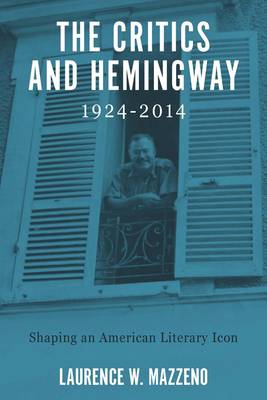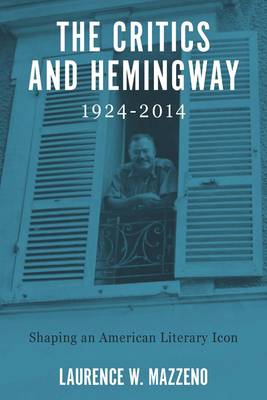
Bedankt voor het vertrouwen het afgelopen jaar! Om jou te bedanken bieden we GRATIS verzending (in België) aan op alles gedurende de hele maand januari.
- Afhalen na 1 uur in een winkel met voorraad
- In januari gratis thuislevering in België
- Ruim aanbod met 7 miljoen producten
Bedankt voor het vertrouwen het afgelopen jaar! Om jou te bedanken bieden we GRATIS verzending (in België) aan op alles gedurende de hele maand januari.
- Afhalen na 1 uur in een winkel met voorraad
- In januari gratis thuislevering in België
- Ruim aanbod met 7 miljoen producten
Zoeken
€ 209,45
+ 418 punten
Uitvoering
Omschrijving
Hemingway burst on the literary scene in the 1920s with spare, penetrating short stories and brilliant novels. Soon he was held as a standard for modern writers. Meanwhile, he used his celebrity to create a persona like the stoic, macho heroes of his fiction. After a decline during the 1930s and 1940s, he came roaring back with The Old Man and the Sea in 1952. Two years later he received the Nobel Prize. While his popularity waxed and waned during his lifetime, Hemingway's reputation among scholars remained strong as long as traditional scholarship dominated. New approaches beginning in the 1960s brought a sea change, however, finding grave fault with his work and making him a figure ripe for vilification. Yet during this time scholarship on him continued to appear. His works still sell well, and several are staples on high-school and college syllabi. A new scholarly edition of his letters is drawing prominent attention, and there is a resurgence in scholarly attention to-and approbation for-his work. Tracing Hemingway's critical fortunes tells us something about what we value in literature and why reputations rise and fall as scholars find new ways to examine and interpret creative work. LAURENCE W. MAZZENO is President Emeritus of Alvernia University. Among other books, he has written volumes on Austen, Dickens, Tennyson, Updike, and Matthew Arnold for Camden House's Literary Criticism in Perspective series.
Specificaties
Betrokkenen
- Auteur(s):
- Uitgeverij:
Inhoud
- Aantal bladzijden:
- 310
- Taal:
- Engels
- Reeks:
- Reeksnummer:
- nr. 71
Eigenschappen
- Productcode (EAN):
- 9781571135919
- Verschijningsdatum:
- 21/12/2015
- Uitvoering:
- Hardcover
- Formaat:
- Genaaid
- Afmetingen:
- 160 mm x 236 mm
- Gewicht:
- 589 g

Alleen bij Standaard Boekhandel
+ 418 punten op je klantenkaart van Standaard Boekhandel
Beoordelingen
We publiceren alleen reviews die voldoen aan de voorwaarden voor reviews. Bekijk onze voorwaarden voor reviews.









